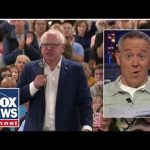Tesla and its CEO Elon Musk, have found themselves at the center of a storm of protests, vandalism, and political controversy, as tensions escalate over Musk’s involvement in the Trump administration. The “Tesla Takedown” movement, a global day of action against Tesla dealerships, took place over the weekend with over 200 protests across the United States and hundreds more worldwide. While organizers claimed the demonstrations were peaceful, incidents of vandalism and arson targeting Tesla properties have raised serious concerns about the movement’s true intentions.
The protests are ostensibly aimed at undermining Musk’s political influence and his role in the Department of Government Efficiency (DOGE), where he has spearheaded efforts to reduce federal spending and bureaucracy. Critics accuse Musk of using his wealth and position to advance conservative policies, which has made him a lightning rod for left-wing activists. The “Tesla Takedown” movement has called for boycotts of Tesla vehicles and stock divestment, but the demonstrations have been marred by violence, including graffiti, gunfire, and Molotov cocktail attacks on Tesla showrooms.
One particularly troubling incident occurred in Brooklyn, where vandals etched a swastika and the word “Nazis” onto a Tesla Cybertruck owned by a Jewish individual. Such acts of hate-fueled vandalism have led law enforcement to classify these attacks as domestic terrorism. The FBI has launched a task force to investigate these crimes, emphasizing that violence against Tesla properties is unacceptable regardless of political grievances. Musk himself has condemned the attacks as “insane,” pointing out that targeting vehicles and dealerships only harms innocent individuals and employees.
Adding fuel to the fire is Minnesota Governor Tim Walz, who has openly mocked Tesla’s plummeting stock value despite his state’s pension fund holding over a million shares in the company. Walz’s comments, delivered during a town hall event, have drawn sharp criticism from Musk, who labeled him “a huge jerk” for celebrating financial losses that impact ordinary Americans. Walz later attempted to walk back his remarks, claiming they were meant as a joke, but his flippant attitude highlights the growing divide between progressive politicians and those who see Musk as a champion of innovation and efficiency.
As tensions rise, the broader implications of these protests cannot be ignored. The targeting of Tesla—a company that has revolutionized the electric vehicle industry—reveals how deeply political polarization has infiltrated both business and public discourse. While peaceful protest is a cornerstone of democracy, resorting to vandalism and violence undermines any legitimate message these activists may hope to convey. Instead of fostering constructive dialogue, such actions only deepen divisions and distract from meaningful solutions.
The chaos surrounding Tesla serves as a cautionary tale about the dangers of allowing political animosity to spiral out of control. Rather than tearing down innovators like Musk, who have contributed significantly to technological progress and job creation, Americans should focus on finding common ground to address their differences. At a time when unity is desperately needed, destructive protests only serve to weaken the very fabric of society.




